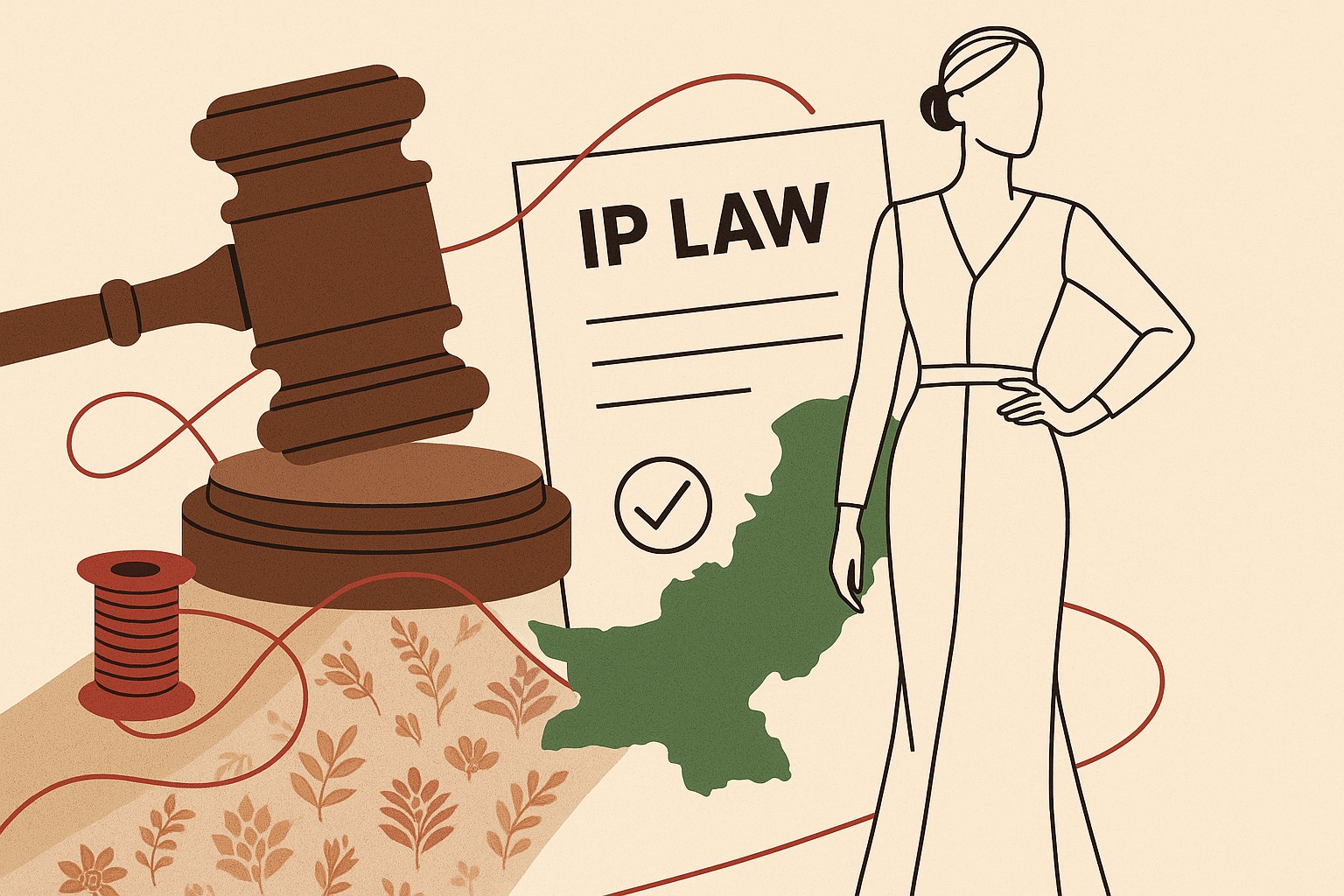.jpeg)
Pakistan’s fashion industry is one of its most visible cultural exports, yet it remains one of the least protected under the law. Despite the explosion of talent and textile innovation, our designers continue to face rampant plagiarism, counterfeit markets, and an alarming lack of legal recourse. It is time we recognize fashion law not as a luxury, but as a necessity.
Globally, countries like the United States protect fashion through a patchwork of intellectual property (IP) rights, trademarks, copyrights, and design patents.
Fashion law clinics, brand enforcement teams, and border crackdowns are standard practice. In Pakistan, however, a designer’s original print can be copied and sold in the market the very next day with little fear of consequence. Though Pakistan has IP laws, the Copyright Ordinance, Trade Marks Ordinance, and Registered Designs Ordinance, they remain underused and poorly enforced. Designers rarely register their designs, enforcement agencies lack training, and IP tribunals are overburdened. Public awareness is equally limited. The result is a culture in which design theft is normalized, and creative effort goes unrewarded.
We need urgent reforms: fast-track design registrations, stronger criminal penalties for counterfeiters, and judicial capacity building for fashion-related disputes. Pakistan’s fashion councils and legal bodies must also collaborate to educate designers and protect their rights.
Our creative industries fuel economic growth, global perception, and national identity. If we fail to legally empower them, we risk diluting both their value and their voice. A well-tailored legal framework for fashion is not just overdue it’s essential.

In civilized societies, the moral compass of citizens often aligns closely with the law. People follow rules not because they fear punishment, but because they genuinely believe in the ethical value behind those rules. In such systems, natural law and moral obligation are often sufficient to ensure social harmony. But in many developing countries, including Pakistan, morality alone fails to guide public behavior. What fills the gap? The answer lies in John Austin’s theory of law, where laws are not truly laws unless backed by sanctions.
Read More
In a groundbreaking courtroom moment in Arizona, the family of Christopher Pelkey, a U.S. Army veteran killed in a 2021 road rage incident, utilized artificial intelligence to create a video of him delivering a victim impact statement during the sentencing of his killer, Gabriel Paul Horcasitas. The AI-generated video, developed by Pelkey’s family, featured a lifelike avatar expressing forgiveness towards Horcasitas. This unprecedented use of AI in a U.S. courtroom has sparked significant legal and ethical debates.
Read More.jpeg)
Pakistan’s fashion industry is one of its most visible cultural exports, yet it remains one of the least protected under the law. Despite the explosion of talent and textile innovation, our designers continue to face rampant plagiarism, counterfeit markets, and an alarming lack of legal recourse. It is time we recognize fashion law not as a luxury, but as a necessity. Globally, countries like the United States protect fashion through a patchwork of intellectual property (IP) rights, trademarks, copyrights, and design patents.
Read More